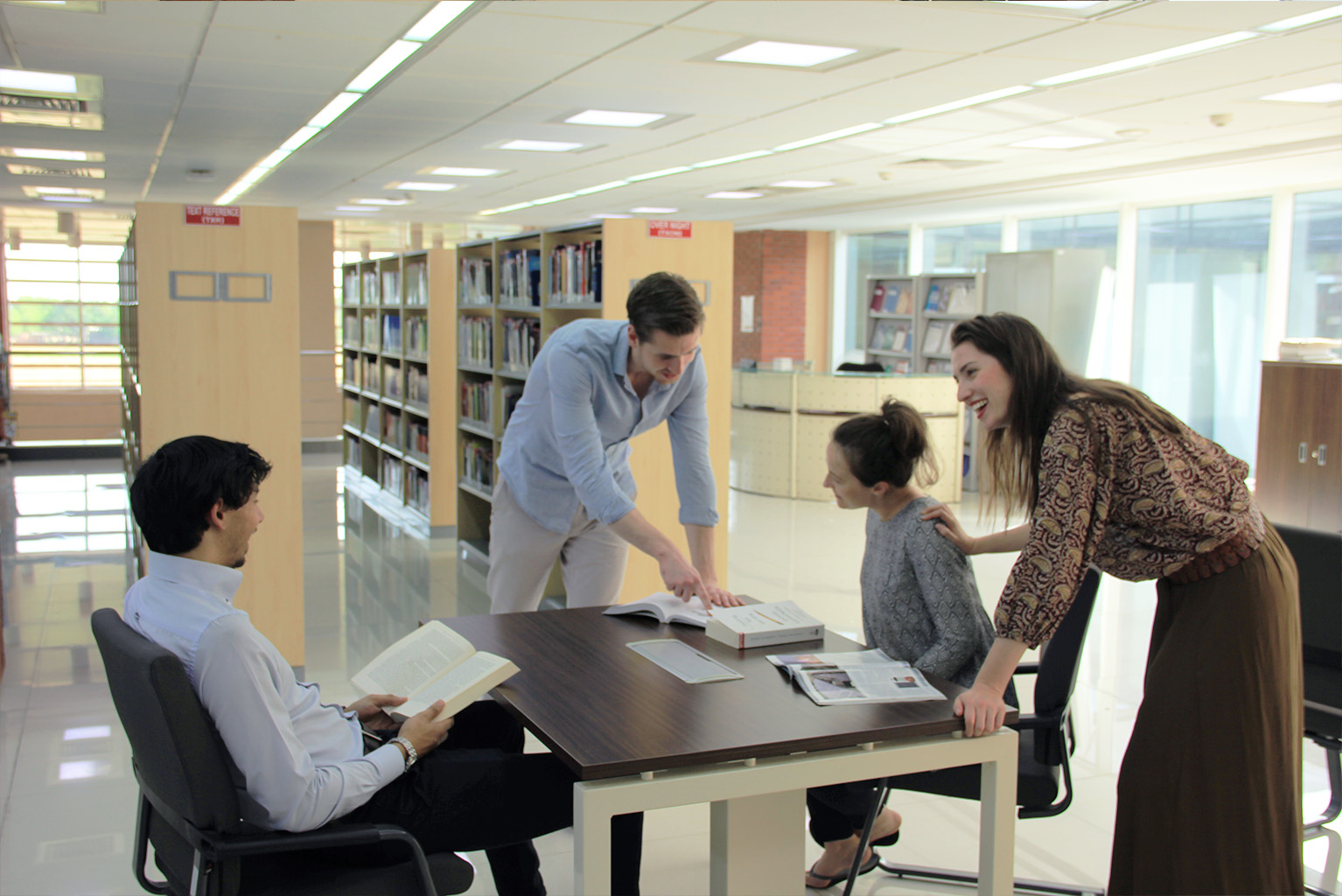Teaching and Learning Practices
Faculty use various pedagogical tools like case discussion and analysis, flipped classrooms, video interventions, problem-solving, in-class tests, tutorials etc. for a more engaged teaching and learning process. The brighter students are encouraged to play an important role in teaching and learning process by taking over the class in any case discussion or flipped classroom setup. For most core course of three credits there are two lecture classes and one tutorial class every week. Students are divided into smaller groups for the tutorial class. The tutorial class allows the faculty to revise the concepts taught in the lecture class and do extra problems with the students to improve their understanding of the concepts. The weaker students get a chance to raise their doubts and queries in the small group tutorial classes.
Some of the innovative teaching practices introduced by faculty members are given below:
-
Preparing Lecture Videos: The availability of lecture videos enables delivery of the course content outside the class by the instructor to the students. This ensures ready information on the course topic and details to be referred by the student in case a class is missed out by him/her.
-
Promoting Creative Writing: Promoting Creative Writing aims at promoting the use of ‘analogies’ in writing thereby enhancing the creativity and effectiveness of the writings. A topic is assigned and the class is asked pen down their individual thoughts on the same. Then, the entire group is asked to share the words which come to their minds while thinking about the same in a brain storming like activity. All these vocabulary items are then written on the board. The group members are asked to rewrite on the same topic making meaningful use of these words in the context. They are encouraged to use as many new vocabulary items as they can. This activity enables enhanced creative expression, promotion of group synergy, freshness and diversity of approach.
-
Group Learning Paper: Group Learning Papers aims at giving the group members an opportunity to reflect and present their diary of learning from each session covered. The write-up is required to be written clearly to indicate the learning outcomes from each session as a result of group participation in classes, exercises, cases, readings and reflection. Group Learning paper impacts and enables working in a team leading to an enhanced team work and coordination. Student involvement in classroom discussion is increased to reflect on the key takeaways. Hand-written reflections improve student understanding followed by recollection of learning.
-
Diversified Student Grouping: Groups of students with mixed academic backgrounds such that those with prior Knowledge/ exposure and those new to the subject were grouped together to encourage peer to peer learning. The students who were dexterous in the subject were evaluated on their performance in helping rest of their group members. Such an exercise promoted Peer to Peer and self-driven group learning.
-
One Minute Quiz: This involves a surprise one minute quiz after the completion of each module. Groups of 2 students each are made at the beginning of the semester and they are given four questions group-wise after the completion of each module. Every group has to respond in one minute. The group members can help each other. This promotes teamwork and learning in a group. This also helps students to be prepared with whatever is covered in class hence promoting continuous learning.
-
Formal Feedback from Students on the spot through 'One Minute Paper': This is an active learning process, which encourages the students to learn more when they 'talk', 'write' and apply concepts in meaningful activities.
-
Role Pay to build Selling Skills: Objective of using this pedagogy is to hone the selling skills of students. This exercise helps the students in gaining confidence and getting selected for selling/marketing profiles.
-
Flipped Classroom: Students are divided into small teams and are required to create a fictitious company. In every class session, students should create and design some aspect of their company e.g. in one session they were introduced to the concept of “Process Modeling”. In the coming sessions, students design hi-level process diagrams for their company. From here, they design the ICT infrastructure of their company. This allows students to closely learn theory-practice applications.
